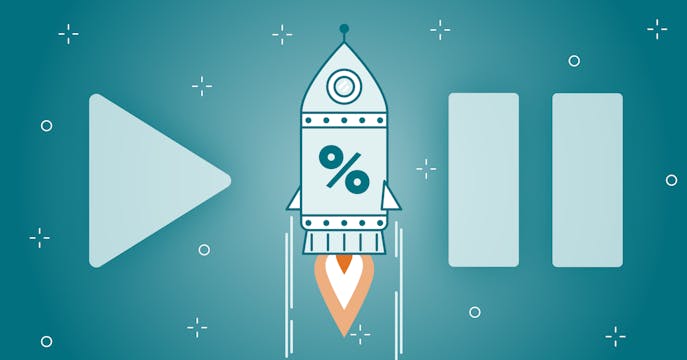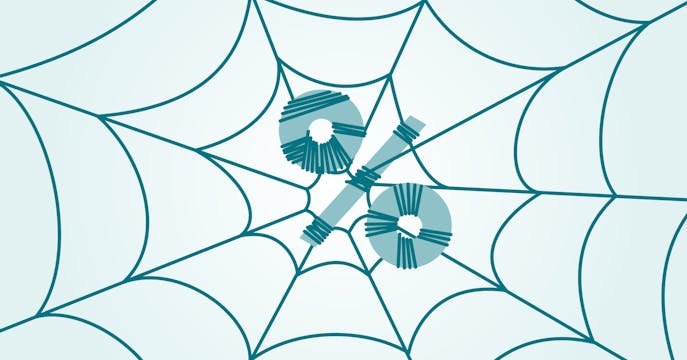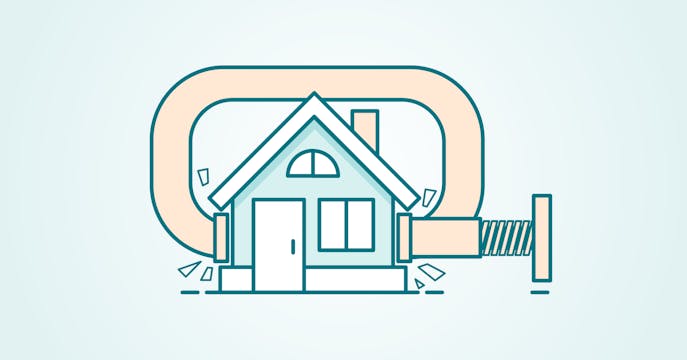Lowest Mortgage Rate in Canada. Starting from 2.49%
Bank of Canada goes for a double-double.
'TNM Talks,' our new blog, has Dan Eisner talking about the second 'double' rate hike in just over a month.
What does this latest increase mean for our clients, and where are interest rates headed?
Dan Eisner, TNM Founder and CEO
Bank of Canada goes for the double-hike of 50 bps, again.
Remember the 'shock and awe' at the first double-notch increase on April 13? Here we are again about six weeks later, but it's more like 'sigh and awe' this time.
We're a little more 'broken in' now to a hike of this size, and, from being in the grocery store lineup or trying to buy a new home, we more clearly understand that inflation has gotten away from us. The Bank of Canada (BoC) began their rate-hike agenda to confront high home prices and rip-roaring inflation with a single bump up back in March, and now these two double-hits bring their benchmark rate to sit at 1.5% today.
For today's announcement, there was a 'musing' from the central bank that it might be a triple, a 75 basis points (bps) increase. But any time it threatens a particular action, that doesn't mean they'll act on it. The marketplace watched intently, but eventually, the BoC settled on a double-hit today, which is still a big, but necessary, jump-up.
With so many in Canada carrying mortgages at really low interest rates — the race is on to get raging inflation under control, yet tread cautiously enough to not leave current homeowners in the rate 'dust.'
Rate Note: A single rate hike is 25 bps. There are 100 bps in a percentage point.
So, what does today's rate hike mean for your variable-rate mortgage?
Today's rate hike to 1.5% — it was 1.75% before the pandemic hit in early 2020 — will affect clients who hold a variable (adjustable) rate mortgage and lines of credit, such as a HELOC (Home Equity Line of Credit). Your rate will go up as a result of this increase, which will up the amount you pay in monthly interest and likely affect your payments.
It should bring lenders' prime rates up to 3.70% (from 3.20%). Say you currently hold a mortgage amount of $350K at our lowest-advertised variable rate of 1.95% (which includes our rate discount) at the standard 25-year amortization. Today's prime-rate increase brings that rate to 2.45%, which in this case means you'll be paying roughly about $85 more per month for interest costs.
Are fixed rates affected?
Fixed mortgage rates aren't directly affected by the prime rate. They're affected by bond yields that anticipate where markets are headed. Fixed rates have already risen in the past few months in anticipation of the central bank's rate-increase mandate. However, fixed rates are still vulnerable to 'rate talk' by the BoC.
For example, suppose today's rate announcement comes out with even more alarm about what inflation is doing than what's already been said. Then, you might see a snappy rise in bond yields, which will bring out an equally-snappy fixed-rate increase from lenders of about 0.25% to keep ahead of where the market may be going.
But for now, current fixed rates (and bond yields) have already increased in anticipation of these expected prime rate increases. So we likely won't see an adjustment as a result of today's rate change.
Do I think that rates are high right now?
That's kind of a trick question. Mortgage rates are incredibly expectation-based. A high rate one day can be a low rate the next.
From our clients' perspective, rates are higher, period, than what they've seen in the past few years. It translates to a direct impact on their borrowing costs in holding, renewing or getting a mortgage.
I see the bigger picture — right now, rates are not historically high. For example, when I launched True North Mortgage in 2006, we stunned the mortgage industry by offering a great fixed rate of 4.99%. At that time, the economy was humming along, and inflation wasn't as high, though Canada and the U.S. were worried about inflation and heating markets — which kept the prime rate up and fixed rates higher alongside them. But at the time, our lower fixed rate was considered a game-changer!
At this moment, our best True North Mortgage 5-year fixed rate sits at 3.79%. I don't look at that as a particularly high rate, but we've gone such a long time with rates being so low — including a pandemic housing anomaly that had a mind of its own — that many people have forgotten that rates could be, and have been, higher.
Where are rates going from here?
There's a lot of speculation about how high and how fast rates will go for the BoC to reach a targeted 'neutral rate' that will neither stimulate nor stifle the economy. Right now, that neutral rate is eyeballed at somewhere between 2 to 3%, which is higher than what was initially indicated (earlier this year, the range was thought to be 1.75 to 2%).
But, there's definitely a cost difference in a benchmark rate at 2% vs. 3%, which will translate into a prime variable rate for mortgage holders.
Where do I think rates will land by the end of 2022?
Continue reading on my next 'TNM Talks' blog — 2022 Mortgage Rate Forecast.
Have questions about the latest BoC rate increase? True North Mortgage is here to help.
We're all about your best mortgage rate, fixed or variable. If you're worried about what rates are doing, or what impact the increase may have on your mortgage plans, give us a shout. We're all about you, not the lender, to provide expert advice that fits your situation.
Where are you in Canada? Our highly-trained, friendly brokers are available online, over the phone, through our chat bubble — or at one of our 12 store locations across Canada.
Talk to us. Save thousands on your mortgage.
More info about mortgage rates, right here

Push 'pause' on your rising rates.
Times are a changin' — rates are blasting off, hold yours now!

Watch Out For Mortgage Traps
Is your spidey-sense tingling? Watch out! That bargain-bin rate may cost you more later.

Mortgage Stress Test: What is it and how does it work?
You have to be able to handle higher payments as a buffer for affordability.

